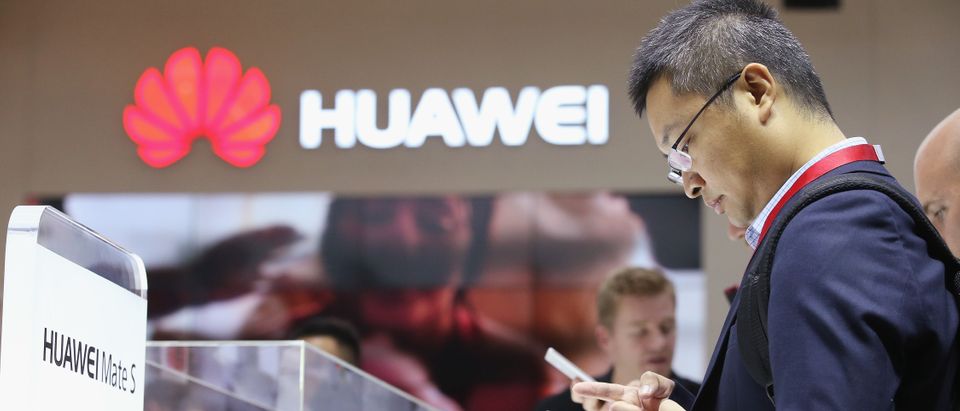What if your cell phone, computer, tablet and other electronic gizmos were connected to a cellular network made in China and used to spy on us? What if the Chinese government and its military knew everything about you? And what if the same electronic and network equipment operated by our military and American industry had the same problem?
That is what the arrest of the chief financial officer (CFO) of Huawei Technologies, one of China technological and industrial giants, is really all about. Although the arrest in Canada of Huawei CFO Meng Wanzhou was ostensibly about her company’s illegal and dangerous commercial trade with Iran, it is primarily about our national security.
Predictably, Huawei says the Chinese government doesn’t tell them what to do, they never spy on anyone, and they didn’t illegally trade with Iran. Others say that throwing this arrest into the middle of the current trade negotiations between China and the United States inflammatory.
But something very important is also going on.
The United States is seeking to get wireless and internet providers to stop using Huawei technology, especially as the world is upgrading to 5G. According to the Wall Street Journal, 5G will connect factories, self-driving cars and health monitors to the internet, which could be an open-door invitation for China and the People’s Liberation Army to interfere with a growing “internet of things” if Huawei provides the cellular network.
Allies Great Britain, Australia and New Zealand are blocking Huawei in various ways, but other countries say the company provides lower costs and better quality.
State-sponsored cyber threats and espionage are not new. China brings to the table an “all-of-government approach” to our security vulnerabilities and not just the nuclear and missile threats most often thought of as the kind of threats that come from our major adversaries.
Adding to this mix an ability to “interfere with an ever-growing universe of connected devices” is not in America’s interest.
Years ago, the government figured out the spectrum is valuable and would auction off access to the spectrum for billions. On the other hand, some analysts think the spectrum is “worthless” without adopting 5G.
The FCC plans to launch three more auctions next year to encourage the use of “millimeter wave” spectrum, so called because its wavelengths are so close together they are measured in millimeters. Such high frequencies allow new radio equipment to squeeze massive amounts of information into a small beam, allowing companies to provide broadband service over the air that is as fast as fiber-optic cable.
China’s influence on the spectrum issue is taken very seriously. Florida Republican Sen. Marco Rubio lauded the arrest in Canada and notes Huawei poses a “serious risk to U.S. national security” because of its direct ties to the Chinese communist party and government.
Huawei also poses a serious risk to national security because of its sale of telecommunications equipment to Iran — a point echoed by Democratic Senator Mark Warner, also a member like Senator Rubio of the Senate Intelligence Committee, as well as Sens. Ben Sasse and Chris Van Hollen.
Because American companies are global leaders in design and development of millimeter wavelength satellites and solutions, and with 130 satellites in orbit using the 28 GHz spectrum, high-speed connectivity to serve those not now connected to the internet can enhance education, health care, and economic activity but need not be done at the price of undermining U.S. security.
In short, “satellite connectivity in the 28 GHz band is a valuable and critical part of current and future worldwide digital inclusion, national security and consumer connectivity,” says one top analyst.
China is pushing for changes in satellite connectivity that will compromise U.S. national security.
This then is the connection to China. A Congressional report of the U.S.-China Economic Review and Security Review warns about China’s drive to control 5G mobile technologies, as we have discussed here.
The Commission notes, “5G networks are expected to quicken data speeds by 100 times, support up to 100 times more internet-connected devices, and provide near-instant universal coverage and availability.”
Similarly, the U.S. Trade Representative Office last year “launched a year-long investigation into China’s practices in technology transfer and IP theft.” At stake, says Bloomberg News, is domination of the information technology industry.”
We know that China likes to play by a completely different set of rules than its trade and investment partners, so keeping the Internet free of Chinese espionage is critical for our security.
The administration’s efforts to hold China accountable are commendable and long overdue. Arresting the CFO from Huawei may be hardball, but whatever direction we move to take advantage of 5G, we should not bundle with it nefarious and predatory Chinese behavior inimical to our nation’s security.
Peter Huessy is the director for strategic deterrent studies at the Mitchell Institute for Aerospace Studies.
The views and opinions expressed in this commentary are those of the author and do not reflect the official position of The Daily Caller.


